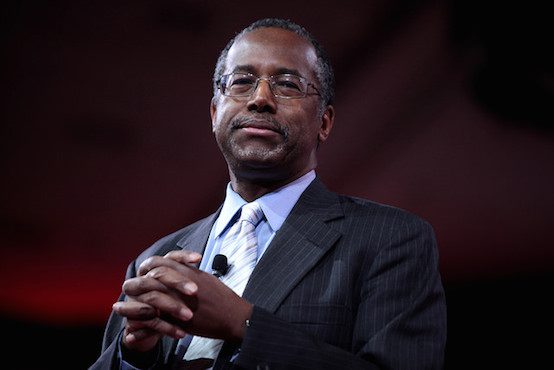Trump’s Cabinet

I was working on a run-down of Trump’s appointments so far, when I saw that Robert Verbruggen did an exemplary job of it already. So I’ll just add my two cents to his.
On foreign policy, right now, there are two important players and two bit players. It is very hard for me to imagine that Nikki Haley will have any influence as U.N. Ambassador, and I suspect that Mike Pompeo, like Governor Haley, was chosen primarily for political reasons; he’ll be in charge of preparing intelligence briefings that Trump refuses to read. So right now it’s Mike Flynn at the NSC, who strikes me as a deeply disturbing crank, versus James Mattis at Defense, who I find reassuring on multiple levels.
The balance depends on who Trump picks as Secretary of State, and whether that appointee tips the scales in favor of extremism or in favor of sobriety. Bolton or Giuliani would tip it decisively in the former direction. Corker would be somewhere in the middle, but I suspect might prove to be a weak player. The main risk with Romney is that he will prove a pure opportunist; since he has neither background in foreign policy nor the trust of the President-elect, his influence will depend on being able to undermine other players, which is a terrible dynamic. So there are a lot of bad choices, but they are not all bad in the same way. I am trying not to get too hopeful about rumors that Trump is expanding the circle of inquiry, and specifically considering John Huntsman, who would make an excellent choice for the job.
On economic policy, Wilbur Ross is a known quantity and promises to be among the most influential Commerce Department heads in history. I expect whoever Trump picks as Trade Representative to be a similarly forceful character. But the big question is what Steve Mnuchin wants, or believes, which is something nobody really knows. If the answer is “nothing much” — which is very possible — then we can expect a Trump administration to rubber-stamp whatever Paul Ryan delivers him. But it’s also possible that Mnuchin has actual views on subjects like tax policy, budgeting, and monetary policy. At this point, it’s a mystery.
It is worth noting in this regard that Mnuchin is somewhat different from Wall Street corporate honchos (and Goldman alumni) Robert Rubin and Hank Paulson in one important respect. Mnuchin made his initial pile at Goldman, but then left to pursue his own entrepreneurial ventures, whereas Rubin and Paulson climbed the greasy pole to the top. Mnuchin never rose to the level where his core concerns were the kind of macro policymaking issues that Treasury Secretaries deal with — but he’s also played the finance game outside of an investment banking context, with his own capital, which is what real businesses have to do. I will be interested to learn how these differences affect his perspective on Federal policy towards the financial system, if they do at all. I will also be very interested to learn whether he reaches out to people who actually know what they are talking about on subjects where he is a novice — which is most subjects under his purview. I’m not holding my breath — but I am watching.
As for the rest of domestic policy, Trump’s appointments are entirely unsurprising and reflect the campaign that Trump ran. Do I think Ben Carson will be a good head of HUD? No — I think he’ll be completely ineffectual. But I also had no reason, based on the campaign, to think that a Trump administration would have any particular plans for HUD. By contrast, it was clear from the campaign that Trump intended to spend a bunch of money on infrastructure, and it turns out Trump appointed someone for Transportation who is eminently qualified for the position. Appointing Betsy DeVos to Education is an indication that Trump has no particular plans for that department, and is happy for it to become a conservative ideological playground, whereas appointing Jeff Sessions as Attorney General is an indication that he intends to follow through as much as possible on a purely law-and-order approach to questions of policing, immigration enforcement, etc. Verbruggen describes this as Trump choosing by issue whether to tack in a movement-conservative or populist direction; I’d say he’s picked people who matter for departments he cares about, and for departments he doesn’t care about he’s chosen people who don’t matter.
The big domestic policy question mark is whether Trump intends to keep his respective promises to repeal Obamacare and to protect Medicare and Social Security from cuts. Paul Ryan wants to help him keep the first promise and break the second. By appointing Tom Price, Trump has put Ryan in a position where he has no basis for complaining about lack of support for doing exactly what he wants. Which, I think, means that Ryan owns both questions, and owns whatever backlash comes of getting either issue wrong, either by cutting popular programs or failing to act expeditiously on his promised agenda. I suspect Ryan will come to rue the invitation to jump into that particular briar patch. But we’ll see, won’t we?
Comments